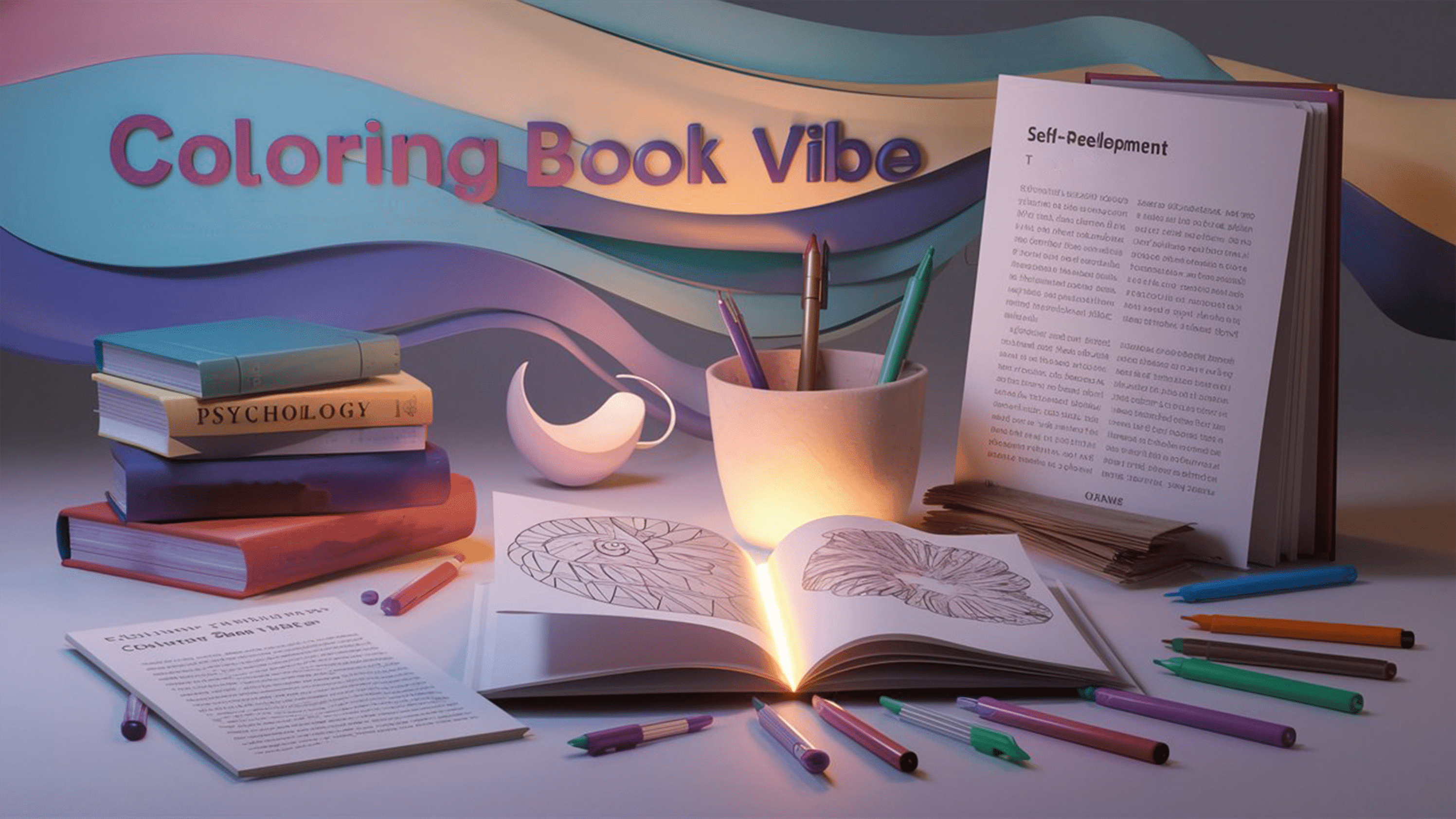Stress has become a constant companion in modern life, affecting our mental, emotional, and physical well-being. From daily tasks to long-term life goals, the pressures of life can feel overwhelming at times. However, one powerful tool in managing and reducing stress often goes overlooked: self-acceptance. When you fully embrace who you are, including your flaws and imperfections, you free yourself from unrealistic expectations and the chronic stress that often stems from self-criticism. Loving yourself allows you to navigate daily challenges with more ease, resilience, and peace of mind.
In this article, we’ll explore the connection between self-acceptance and stress relief, discuss the psychological benefits of self-compassion, and offer practical steps for cultivating self-love to reduce daily tensions.
The Link Between Self-Acceptance and Stress
Stress arises when we feel overwhelmed, pressured, or incapable of meeting demands. These demands may come from external sources, such as work or family responsibilities, but often, they stem from internal pressures—expectations we place on ourselves. For many, the root of this stress is the belief that we must be perfect or live up to certain ideals to be worthy of love and success.
Self-acceptance is the antidote to this perfectionism. When you accept yourself as you are, you let go of the pressure to meet unrealistic expectations. This internal shift reduces the mental and emotional strain that comes from trying to live up to standards you may never reach.
1. Reducing the Need for Perfectionism
One of the primary sources of daily stress is perfectionism—the desire to get everything right and avoid mistakes. Perfectionists tend to be highly self-critical, constantly feeling like they’re falling short of their own or others’ expectations. This leads to a relentless cycle of stress, anxiety, and frustration.
- Self-Acceptance as a Stress Reliever: When you embrace your imperfections and understand that making mistakes is a natural part of life, you remove much of the pressure to be perfect. Accepting that it’s okay to fail allows you to focus on learning and growth, rather than avoiding errors. As a result, stress levels decrease because the fear of not being good enough no longer dominates your thoughts.
2. Letting Go of Comparison
Another major source of stress comes from comparing ourselves to others. Whether it’s our careers, relationships, physical appearance, or accomplishments, it’s easy to fall into the trap of feeling inferior when we measure our lives against someone else’s. Constant comparison breeds feelings of inadequacy, which heightens stress and anxiety.
- The Role of Self-Acceptance: When you accept and love yourself, you no longer feel the need to compare yourself to others. You understand that everyone has their own unique journey, and your worth isn’t defined by how you stack up against others. This mindset shift allows you to focus on your own progress and achievements, rather than feeling stressed about not measuring up.
3. Reducing Social Stress
Many people feel stressed in social situations because they worry about how others perceive them. This fear of judgment can lead to anxiety, self-doubt, and even avoidance of social interactions. Social stress often stems from the belief that we need to be liked or approved by others to feel worthy.
- Self-Acceptance and Social Ease: Self-acceptance helps you feel more comfortable in your own skin, which naturally reduces social anxiety. When you’re secure in who you are, you no longer feel the need to seek approval from others. You can engage in social interactions with confidence, free from the constant worry of being judged or criticized.
4. Managing Negative Self-Talk
Our inner dialogue has a significant impact on our stress levels. People who struggle with self-acceptance often engage in harsh, negative self-talk. This inner critic amplifies stress by reinforcing feelings of inadequacy and self-doubt. Constantly criticizing yourself for perceived failures or shortcomings creates a negative feedback loop that keeps stress levels high.
- Transforming Self-Talk: Self-acceptance allows you to replace negative self-talk with self-compassion. Instead of berating yourself for mistakes, you treat yourself with kindness and understanding. This compassionate inner dialogue reduces emotional stress and promotes a healthier, more balanced mindset. As a result, you become more resilient in the face of challenges.
The Psychological Benefits of Self-Acceptance
Embracing self-acceptance doesn’t just reduce stress; it has profound psychological benefits that contribute to overall well-being. Here are a few ways in which self-acceptance promotes mental health and emotional balance:
1. Improved Emotional Regulation
People who accept themselves tend to have better emotional regulation skills. This means they are less likely to overreact to stressful situations and more capable of managing their emotions in a healthy way. Self-acceptance provides a stable emotional foundation, allowing you to respond to challenges with calm and clarity rather than panic and overwhelm.
- Practical Application: When you encounter a stressful situation, instead of spiraling into negative thoughts or reacting impulsively, self-acceptance helps you pause, reflect, and respond in a way that aligns with your values. You’re more likely to take a measured approach rather than letting stress take over.
2. Enhanced Resilience
Resilience is the ability to bounce back from adversity, and self-acceptance is a key component of building resilience. When you accept yourself, you are more likely to view setbacks as opportunities for growth, rather than as personal failures. This perspective shift makes it easier to recover from life’s challenges with a sense of optimism and confidence.
- Practical Application: Self-acceptance helps you see challenges as part of the human experience, not as reflections of your inadequacy. This mindset makes it easier to cope with stressors, from everyday inconveniences to major life events.
3. Greater Life Satisfaction
Self-acceptance is strongly correlated with higher levels of life satisfaction. When you’re no longer consumed by the need to be perfect or the fear of others’ judgment, you can focus on what truly brings you joy and fulfillment. This sense of contentment leads to a more peaceful, less stressful existence.
- Practical Application: By focusing on your personal values and what makes you happy, rather than striving to meet external expectations, you can create a life that feels authentic and satisfying. This reduces the stress of trying to meet arbitrary standards and allows you to enjoy the present moment.
Steps to Cultivate Self-Acceptance for Stress Relief
Now that we understand the connection between self-acceptance and stress relief, let’s explore some practical steps you can take to cultivate self-acceptance in your daily life.
1. Practice Mindfulness
Mindfulness is the practice of staying present in the moment and observing your thoughts and emotions without judgment. It helps you become more aware of your internal dialogue and recognize when self-criticism or negative thoughts are taking over. Mindfulness can also reduce stress by helping you stay focused on the present rather than worrying about the past or future.
- How to Practice: Set aside a few minutes each day for mindfulness meditation. Sit quietly, focus on your breath, and observe any thoughts or feelings that arise without attaching judgment to them. Over time, this practice can help you develop greater self-acceptance.
2. Challenge Negative Beliefs
Many of the beliefs we hold about ourselves are shaped by past experiences, social conditioning, or fear of judgment. These beliefs can fuel stress and prevent us from embracing self-acceptance. Start by identifying any negative beliefs you have about yourself, such as “I’m not good enough” or “I need to be perfect to be loved.”
- How to Challenge These Beliefs: Once you’ve identified these negative beliefs, challenge them by asking yourself if they are truly accurate. Replace these beliefs with more compassionate and realistic statements, such as “I am enough as I am” or “I don’t need to be perfect to be worthy of love.”
3. Set Realistic Expectations
Unrealistic expectations, whether placed on ourselves or by others, are a major source of stress. To reduce daily tensions, it’s essential to set realistic expectations for yourself. This means recognizing your limits, acknowledging that you can’t do everything perfectly, and giving yourself permission to make mistakes.
- How to Set Realistic Goals: Break down larger tasks into smaller, manageable steps. Allow yourself to take breaks and prioritize self-care when needed. Remember that progress, not perfection, is the goal.
4. Cultivate Gratitude
Gratitude is a powerful practice for shifting your focus from what you lack to what you have. By regularly acknowledging the positive aspects of your life, you can reduce stress and develop a greater sense of self-acceptance.
- How to Practice Gratitude: Keep a daily gratitude journal where you write down three things you’re grateful for. Over time, this practice can help you develop a more positive outlook on life and reduce the stress of feeling inadequate or unfulfilled.
5. Surround Yourself with Supportive People
The people you surround yourself with can significantly influence your self-acceptance. Spend time with people who appreciate and support you for who you are, rather than those who constantly criticize or judge you. Supportive relationships can help reinforce your self-worth and reduce the stress that comes from feeling unaccepted or unloved.
- How to Build Supportive Relationships: Nurture relationships with people who encourage your growth and happiness. Limit contact with individuals who drain your energy or make you feel unworthy.
The Freedom of Loving Yourself
Self-acceptance is not about ignoring your flaws or giving up on self-improvement. It’s about recognizing your worth, embracing your imperfections, and letting go of unrealistic expectations. When you learn to love yourself, you free yourself from the constant pressures and stresses of daily life. Instead of feeling overwhelmed by challenges, you approach them with confidence, resilience, and inner peace.
By cultivating self-acceptance, you create a solid foundation for stress relief and emotional well-being. The more you embrace who you are, the more you’ll find that daily tensions lose their grip, allowing you to live a more relaxed and fulfilling life.
Let your imagination run free, Immerse yourself in a world of colors and beauty. Remember, your mental well-being is priceless.
Team coloringbookvibe.com

Coloring Book Vibe is a dedicated publisher of captivating coloring books, along with instructional books on drawing and coloring techniques. We are deeply passionate about the art of coloring, ensuring our designs are always intricate, beautiful, unique, and often infused with a touch of humor. We highly value our customers and always welcome feedback and suggestions. Our collection features an incredible array of coloring books across various genres, including Fantasy, Animals, Mandalas, Doodle Patterns, Floral, Landscapes, Country Scenes, and more.



